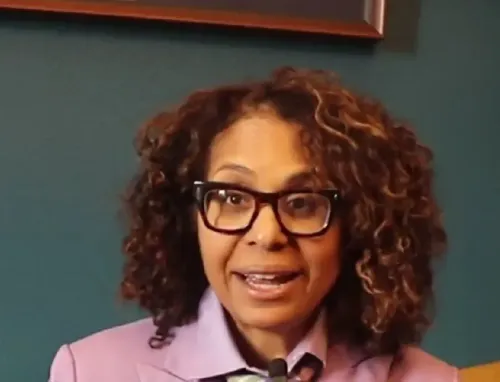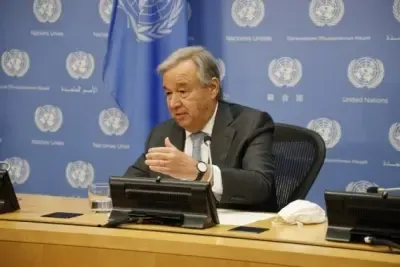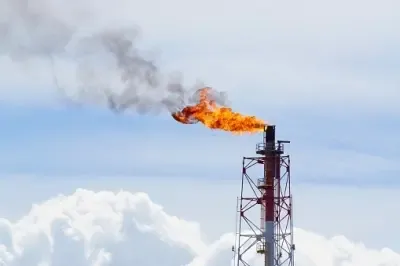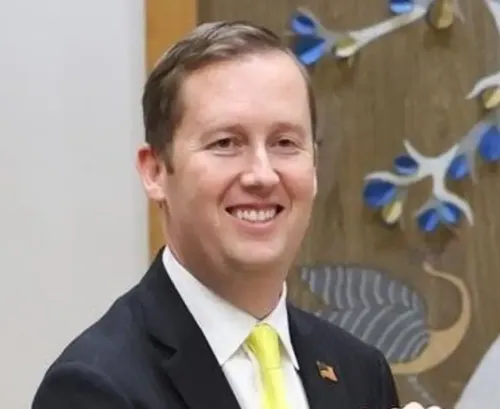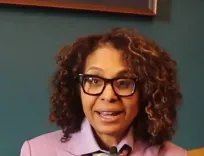Why Did the Human Rights Body Condemn the Brutal Massacre of Pashtoon Civilians in Pakistan?
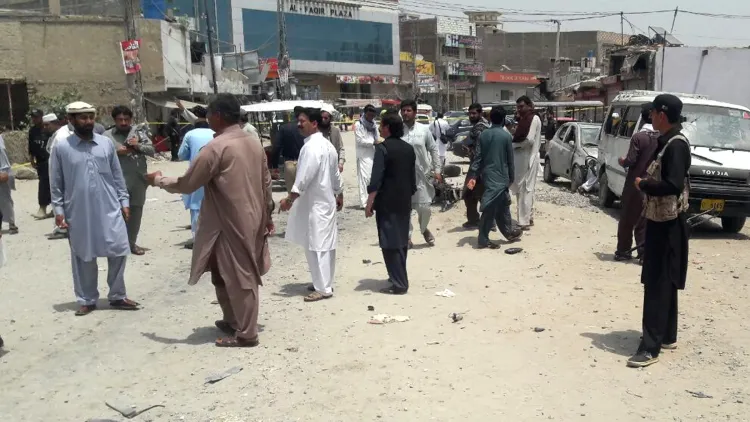
Synopsis
Key Takeaways
- Over 30 Pashtoon civilians were killed in a recent airstrike by the Pakistani Air Force.
- The incident has been condemned as a systematic policy of genocide against oppressed nations.
- Human rights organizations are calling for urgent international intervention.
- Continued violence against Baloch and Pashtoon communities reflects a long history of state-sponsored atrocities.
- There is an urgent need for accountability and justice for victims of violence.
Quetta, Sep 24 (NationPress) A prominent human rights organization vehemently denounced the recent heinous massacre of innocent Pashtoon civilians in Pakistan's Khyber Pakhtunkhwa (KP) province, labeling it a systematic policy of genocide that has persistently targeted oppressed nations within the nation.
The outrage follows an incident on Monday when the Pakistani Air Force unleashed eight bombs on the Pashtun-majority village of Matre Dara in Tirah Valley, claiming the lives of over 30 individuals, including numerous women and children, and leaving many others critically injured. This brutal act has sparked widespread condemnation from various human rights organizations and individuals globally.
"It is the fundamental duty of any state to protect its citizens. Yet, in Pakistan, the state itself has morphed into a perpetrator of violence, turning its weaponry against its own populace. Rather than ensuring safety, it wages war on those it is supposed to protect," asserted the Baloch Yakjehti Committee (BYC) in a statement.
"The massacres in Tirah Valley are not isolated events. They are part of a persistent history of state-sponsored violence and atrocities—from the Babra massacre to the unsettling discovery of mass graves in Tootak, from drone strikes that killed civilians in Balochistan’s Zehri to the targeted killings of peace march activists in Bannu," the statement elaborated.
The BYC emphasized that this sequence of crimes demonstrates a systematic approach of violence and erasure against both Baloch and Pashtoon communities.
According to the BYC, Pakistan’s aggression is escalating, perpetuating cycles of suffering, oppression, and genocide. In response, the rights body urged the Baloch and Pashtoon populations to maintain their collective, peaceful resistance against state brutality.
"Our political and human rights activists must unite to combat this barbarism and to uphold the dignity and survival of our nations," the rights body emphasized.
Condemning the military actions, another rights organization, Baloch Voice for Justice (BVJ), stated that Pakistan's ongoing indiscriminate bombings and drone strikes from KP to Balochistan signify blatant violations of international law and human rights, which could amount to war crimes.
The BVJ called upon the United Nations, international human rights organizations, and the global community to urgently intervene, advocating for independent investigations and accountability for those responsible.

